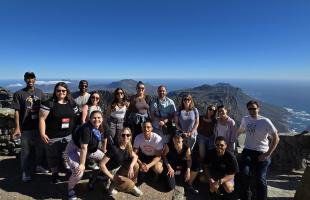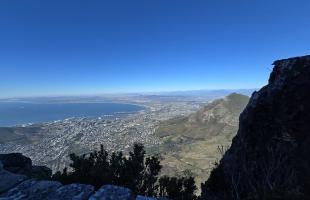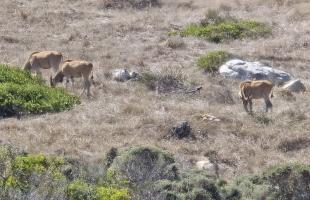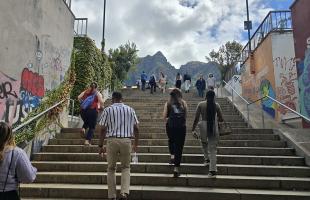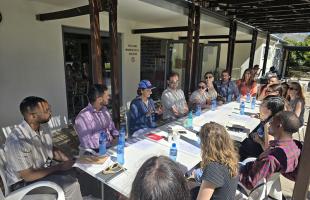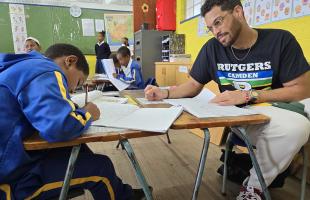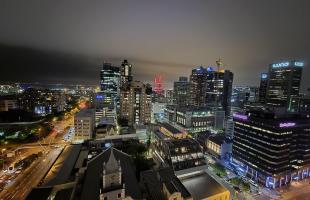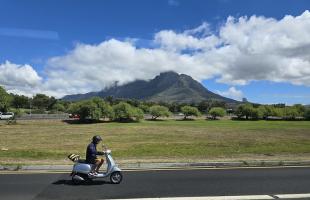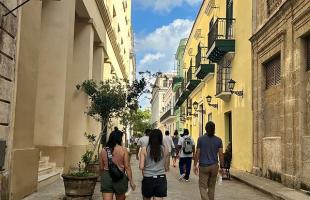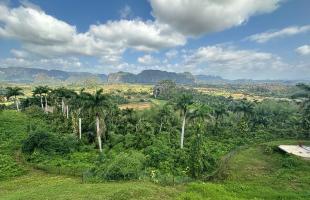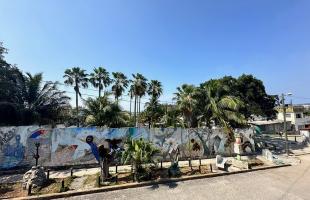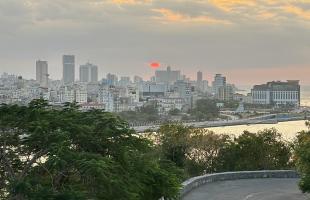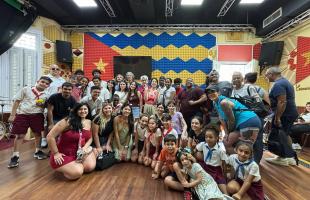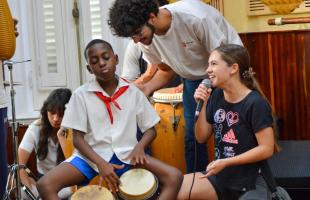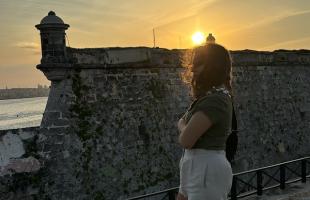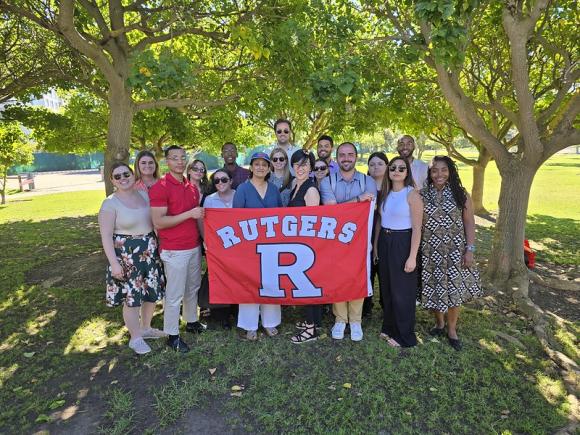
Rutgers Law students at South Africa's Green Point Urban Park with Health Justice Initiative Attorney Fatima Hassan.
Spring Break may typically conjure visions of beach vacations, time with friends, or simply relaxing and recharging for the end of the semester. But many Rutgers Law students bucked this trend, opting instead for a Spring Break spent immersed in life and the law abroad.
For nearly 30 years, Rutgers Law School has offered South African Constitutional Law, a course that introduces students to the history of the country, the development of its constitution, and how its laws handle issues from health and human rights to political, economic, and social development. This culminates in a 12-day trip to Johannesburg and Cape Town during Spring Break, where students visit nongovernmental law organizations, the University of the Western Cape, and even an elementary school. Additionally, students visit cultural attractions like Robben Island, where noted political prisoners like Nelson Mandela were held; Table Mountain; Kruger National Park, one of the largest wildlife reserves in Africa; and the Cape of Good Hope, most famous as the “tip” of Africa.
This year, Professor of Law Christina S. Ho infused the course with a focus on health and human rights. As such, stops along the trip included Section 27, which has spearheaded leading litigation around HIV treatments and reproductive and education rights; the Health Justice Initiative, a public health and law initiative addressing the intersection between racial and gender inequality; the Equal Education Law Centre which focuses on resources and education; and more.
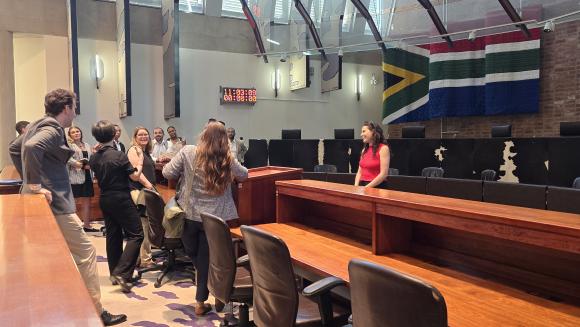
Rutgers Law Dean Johanna Bond with students inside South Africa's Constitutional Court.
This year’s cohort included 15 Newark and Camden students and one alumna along with Rutgers Law Dean Johanna Bond. They also visited South Africa’s Constitutional Court and met with Justice Leona Theron and Acting Justice Alan Dodson.
"With any class I teach, I want students to come away with a new sense of possibility,” says Ho. “I intended the experience of this course to work on many levels so that students come away with not only the prospect of success in our shared struggles to transcend injustice but also the knowledge that a global career is within their grasp."
Indeed, Camden student Rachel Tavani ’24 appreciated witnessing firsthand the parallels between South Africa and the United States. “Seeing how a country can reckon with a passive apartheid or a passive racial segregation is really inspiring, especially because in some parts of the United States that reckoning hasn’t really happened fully,” she says. “In South Africa, we experienced the fact that it’s tangible and it can be done. This re-energized and inspired me in many ways.”
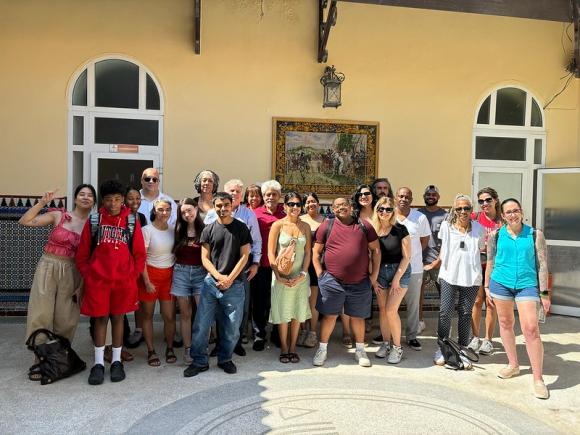
Rutgers Law students and alumni visit Cuba as part of the Cuba Legal Field Study course.
Cuba Legal Field Study
In addition to the South Africa opportunity, Clinical Professor of Law Charles Auffant has taught a course called Cuba Legal Field Study almost every year since 2004. Leading up to Spring Break, students learn about Cuban and US history, the Cuban constitution, and the laws governing the relationship between the US and Cuba. This year, as Auffant celebrated 20 years of leading this trip, about 10 students and 10 alumni joined him in Havana during Spring Break.
The cohort heard from University of Havana law professors and members of the National Union of Cuban Jurists (akin to the American Bar Association) about legal education, family law, penal law, constitutional law, and more.
“Cuba is a strong and inspirational country with a people that are talented and creative,” says 3L student Nicholas Ayala. “Despite the immense hardship faced by Cuba due to US policies, there is still a strong sense of hope and perseverance. Being able to connect people to people and learn about the systems and law of a nation like Cuba is a tremendous experience that everyone should get to have."
The group also immersed themselves in Cuban culture, and even spent time in “el campo,” or the countryside, to get a better understanding of rural Cuban life. For 2L student Bianca Hernandez, these cultural experiences left the biggest impression. “The Cuban people are a community; it’s ‘we’ not ‘me,” she says. “Cuba was so vibrant yet frozen in time. The people were happy and kind. The culture, food, and music were one of a kind.”
Though they spotlight vastly different cultures and are nearly 8,000 miles apart, these two travel opportunities share a common goal: introducing students to comparative legal systems firsthand and offering valuable educational exchanges. “It’s been an incredible experience,” says Newark student Jalen Williams ’24 of his time abroad in South Africa. “The people have been amazing, the culture has been extremely kind, and learning about the differences within their constitution and how they implement their rights has been really eye-opening. I recommend as many people who have the chance to sign up to do so.”
